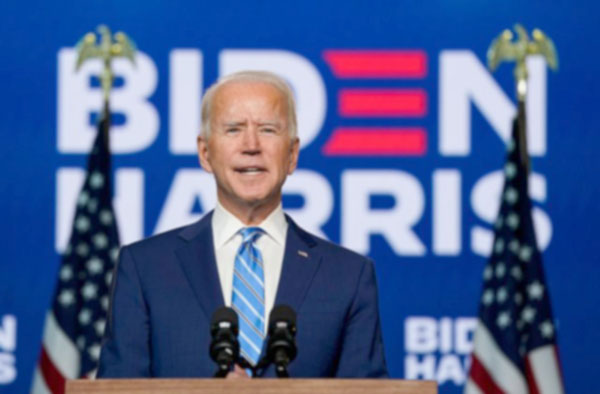By Interaction Desk
With the Joe Biden in the presidency of USA, being old hawk it seems that he will continue the hawkish policy of trying to maintain American primacy over world. USA policy to keep Muslim world as its enemy will continue though he promised to be fair with the Muslims of USA. With Pakistan and India matters, USA’s tilt towards India will be prominent.
USA is selling sophisticated equipment and sea based arms and jets to India will further aggregate the situation of South Asia. USA has announced its advantage sea doctrine on 21st December 2020 and pressurizes China, Russia and Pakistan may continue. In this case Pakistan left with no option that it keeps itself with the regional powers China and Russia.
Pakistan and China has commenced Shaheen 9 exercise with China at Bhollari near Karachi and concluded on 24th December 2020. Earlier Pakistan has similar exercise with Russia. It has become compulsory that Pakistan join regional powers to face the Quad and USA based threat that USA is behaving as an irresponsible power arming a very racist and irresponsible like country like India against China and Russia and sandwiching Pakistan which is a very responsible Strategic country having well trained and disciplined armed Force with limited but reasonably equipped with arms to defend itself.
Indian and USA together with western Powers’ through NGO are trying to destabilize Pakistan and defame it. It uses these NGOs to pressurize Pakistan for its illegitimate demand of do more In Afghanistan also America is playing double game in which blood is basic requirement of US policy which seems to continue in the era of Joe Biden.
If we talk of Southeast Asia and its regional organization, the Association of Southeast Asian Nations (ASEAN), were not on President Donald J. Trump’s radar. President-elect Joe Biden’s victory, however, guarantees neither more U.S. strategic attention on Southeast Asia nor closer ties with ASEAN leaders. China will continue its push to dominate in the region, particularly in the maritime domain, and to undermine the delicate framework ASEAN leaders have stitched together, under a U.S. security umbrella, to offset an overbearing China.
The narrative from the United States is that its emerging China policy is bipartisan. Further, Biden’s personal character is more palatable to his Asian counterparts and he is said both to be more institutionally driven and to have less will to unsettle agreements or long-held relationships with allies and friends in the region. At the same time, Chinese moves in Southeast Asia, notably in the South China Sea and the Indian Ocean, are viewed with particular concern given the long-term strategic interests of the United States and its allies in the Indo-Pacific.
The uncompromising attitude of the Democratic Party toward what it perceives as authoritarianism and the role of the military in some ASEAN member states will bring some disquiet to the surface in Southeast Asia when a Biden administration is in the White House. Regardless of whom the next U.S. president is, then, the current strategic environment defined by a more-inward looking America and a more aggressive China presents significant challenges to advancing a meaningful U.S.-ASEAN strategic partnership.


